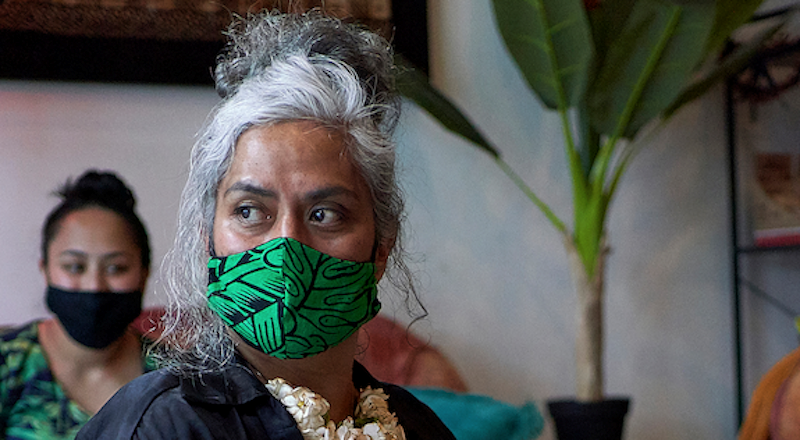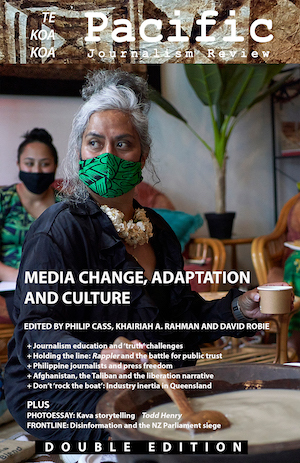NZ’s Parliament siege, ‘disinformation war’, kava and media change featured in latest PJR

Detail of an image from the kava photoessay in this edition by Todd Henry.
Frontline investigative articles on Aotearoa New Zealand’s 23-day Parliament protester siege, social media disinformation and Asia-Pacific media changes and adaptations are featured in the latest Pacific Journalism Review.
The assault on “truth telling” reportage is led by The Disinformation Project, which warns that “conspiratorial thought continues to impact on the lives and actions of our communities”, and alt-right video researcher Byron C Clark.
Several articles focus on the Philippines general election with the return of the Marcos dynasty following the elevation of the late dictator’s son Ferdinand “Bongbong” Marcos Jr and the crackdown on independent media, including Nobel Peace Prize co-laureate Maria Ressa’s Rappler.
Columbia Journalism School’s Centre for Investigative Journalism director Sheila Coronel writes of her experiences under the Marcos dictatorship: “Marcos is a hungry ghost. He torments our dreams, lays claim to our memories, and feeds our hopes.”
But with Marcos Jr’s landslide victory in May, she warns: “You will be in La-La Land, a country without memory, without justice, without accountability. Only the endless loop of one family, the soundtrack provided by Imelda.”
The themed section draws on research papers from a recent Asian Congress for Media and Communication conference (ACMC) hosted by Auckland University of Technology (AUT) introduced by convenor Khairiah A Rahman with keynotes by Asia Pacific Report editor David Robie and Rappler executive editor Glenda Gloria.
In the editorial titled “Fighting self-delusion and lies”, Philip Cass writes of the surreal crises in the Ukraine War and the United States and the challenges for journalists in the Asia-Pacific region:“Similarly, there are national leaders in the Pacific who seem to truly want to believe that China really is their friend instead of being an aggressive imperialist power acting the same way the European powers did in the 19th century.”
With the Photoessay in this edition, visual storyteller and researcher Todd Henry explores how kava consumption has spread through the Pacific and into the diasporic community in Aotearoa New Zealand.

Pacific Journalism Review … the latest edition cover. Image: PJR
His “Visual peregrinations in the realm of kava” article and images also examine the way Pasifika women are carving their own space in kava ceremonies.
Unthemed topics include Afghanistan, the Taliban and the “liberation narrative” in New Zealand, industrial inertia among Queensland journalists, and Chinese media consumption and political engagement in Aotearoa.
Pacific Journalism Review, founded at the University of Papua New Guinea, is now in its 28th year and is New Zealand’s oldest journalism research publication and the highest ranked communication journal in the country.
The latest edition was published today.











